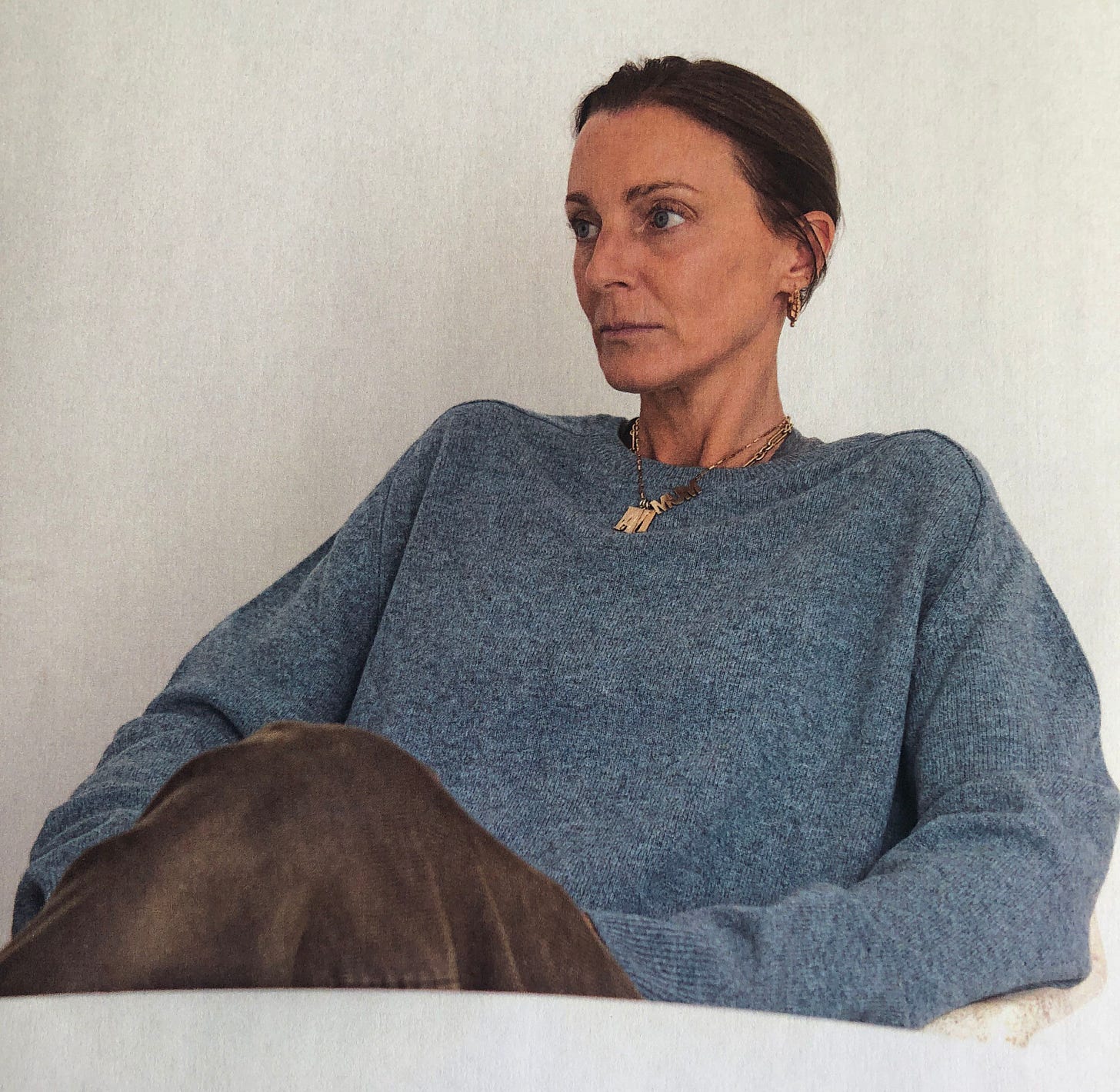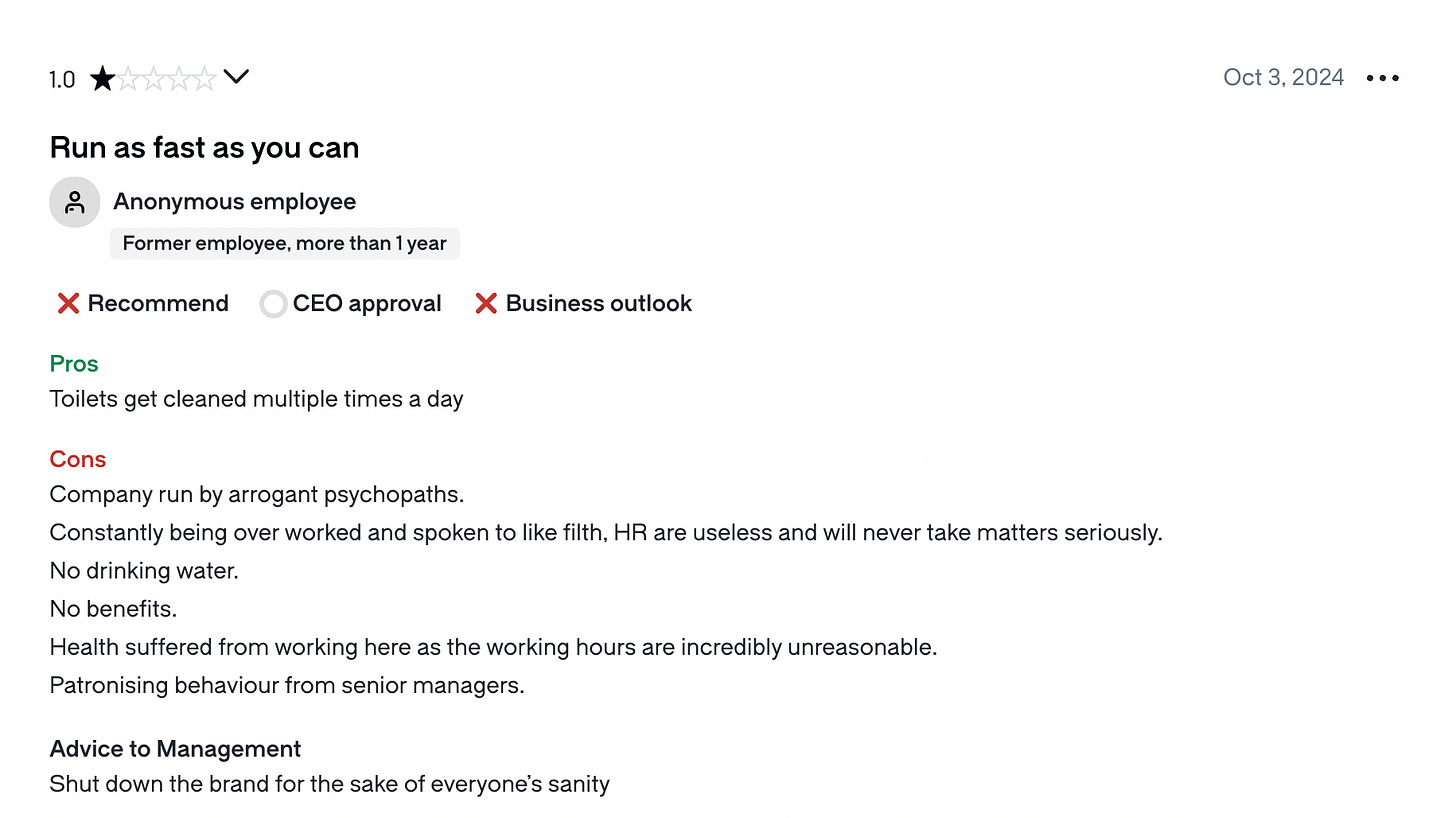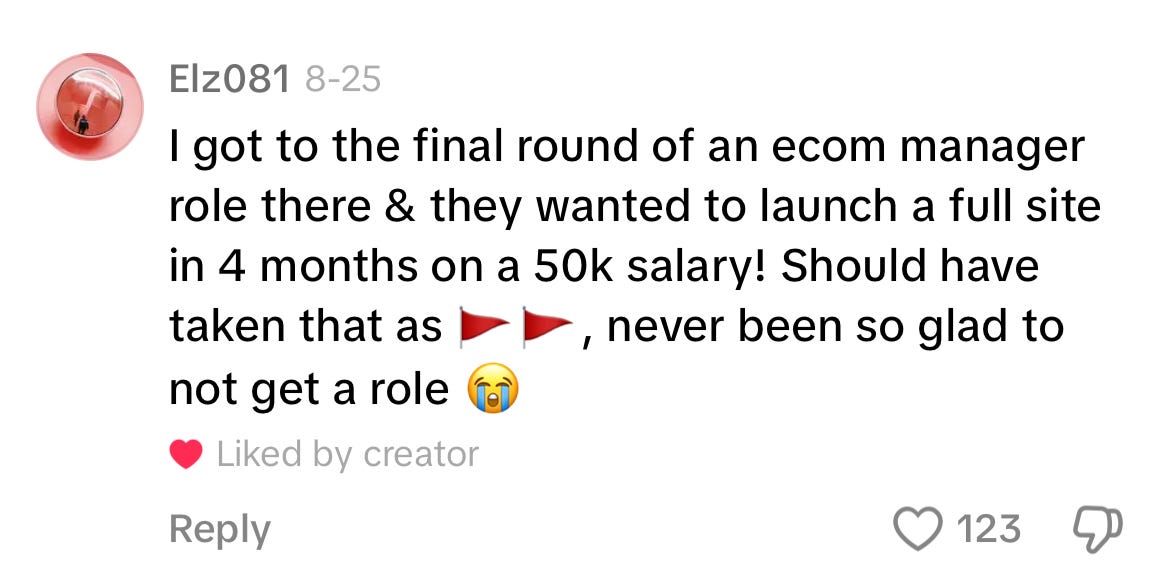ALLEGATIONS OF PHOEBE PHILO'S TOXIC WORKPLACE WENT IGNORED
The fashion press is largely uninterested in critiquing its biggest stars.

A little over a year ago, a friend and I sat across from two Parisian rare book dealers as we enjoyed some crisp libations in a sun-soaked Chelsea restaurant. The duo was in town to see drawings they’d sold to The Met on display for its big spring show and to speak with local clients. Our discussion ranged widely and quickly turned to a battery of industry chatter. We shared several enlightening anecdotes, but one they recounted made my antenna perk up more than the others.
For some context, this was April 2023 and though her return was officially announced, Phoebe Philo had not yet revealed much about the launch of her brand that would become shoppable that October. Talk of her next move was growing, so it was only natural that her name emerged over the course of our conversation. According to the visiting pair, during Philo’s blockbuster tenure at Celine, professors in at least one of London’s top design schools allegedly warned their students against taking internships under her purview over concern of the demeaning, fear-laced environment her leadership fostered. Considering what I’d heard about Philo from other reliable sources, this didn’t surprise me, but I let it go. That is, until August of this year when German editor Brenda Hashtag posted a now-deleted tweet highlighting a series of posts on the employer review site Glassdoor regarding Philo’s eponymous company.
These posts from recent employees reported a toxic workplace laden with bullying management that shouted at employees, a lack of compensation for working overtime or on weekends, no benefits, and a healthy dash of racism and sexism. These were tempered by a small handful of positive reviews interestingly all dated after Hashtag’s August 15 post. Again, given Philo’s reputation, I wasn’t surprised. And regrettably, I wasn’t surprised when almost no mainstream publications picked up on the story.

One might imagine that perhaps the most lauded designer of her generation – one who’s recently launched what some suspect to be a faltering label of her own – getting called out publicly for engendering a brutal workplace might be worth investigating. But this is fashion, and though things have certainly improved in recent years thanks to social media and larger cultural movements calling out exploitation, that kind of setting is far from rare in the industry. Truthfully, for decades, that was very often the norm with those in charge hiding behind the guise of ‘having high standards’ to excuse their behavior. Fashion doesn’t like looking under the hood much, preferring a well-groomed exterior above all else. It really doesn’t like looking under the hood when the subject in question is a megastar creating designs it has a vested interest in promoting.
It could be argued the comments made on Glassdoor and the similar comments posted to TikTok not long after are nothing more than micro hit pieces written in bad faith. (Some might say the same of this newsletter.) Given the anonymity of Glassdoor, that’s certainly possible. Yet I find that scenario unlikely. The themes of those posts square neatly with Philo’s behind-the-scenes reputation and what colleagues have shared with me for years.
Philo has consistently gotten a pass in her career. She is regularly championed as a ‘woman designing for women,’ but has steadfastly excluded non-white women and any semblance of body diversity for most of her time heading prominent labels with sizable customer bases. That such a claim can stand in glaring opposition to reality tells you all you need to know about who fashion considers fully human. I’d strongly argue the only reason she features Black and Brown models in her current campaigns is due to the pressure she experienced in the latter half of her time at Celine. Iman famously cited the moment Philo asked if she’d be “forced to use Black models” after getting called out for her notoriously white casting.



Today, it’s popular to speak on sustainability in fashion. What needs to shift is the notion that environmental certifications on materials are where that conversation should start and stop. Sustainability must also mean compensating people fairly for their labor while treating them well, from the factory floor to the design showroom. Sustainability must mean sometimes doing less so that resources are not constantly stretched to or beyond their limits, burning out a string of eager creatives in the process.
Allegations like these are not unique to Philo, but powerful entities like her have a responsibility to put as much energy into innovating how they operate their businesses as they do the clothes and accessories they create. And fashion media cannot find it acceptable to ignore serious claims because it is more concerned with playing nice for the sake of access.
There is more I could share about Philo, but I don’t think it’s right or necessary to disseminate any and all information, particularly if that information becomes personal. This is about her business, and there’s more than enough to critique in that domain. Just think: If this is what people have shared publicly about working with Philo, what are they still keeping to themselves?




it was a great read, thank you! i wish this situation wasn’t so unnoticed, all of her new launches are all over the media (even not fashion related magazines!) but not this. even brenda hashtag who started this conversation (or made it viral idk) praised the collection just a couple of weeks later with their corso como retail launch.
Great piece! If fashion looks the other way, there is hope that a consumer won’t.